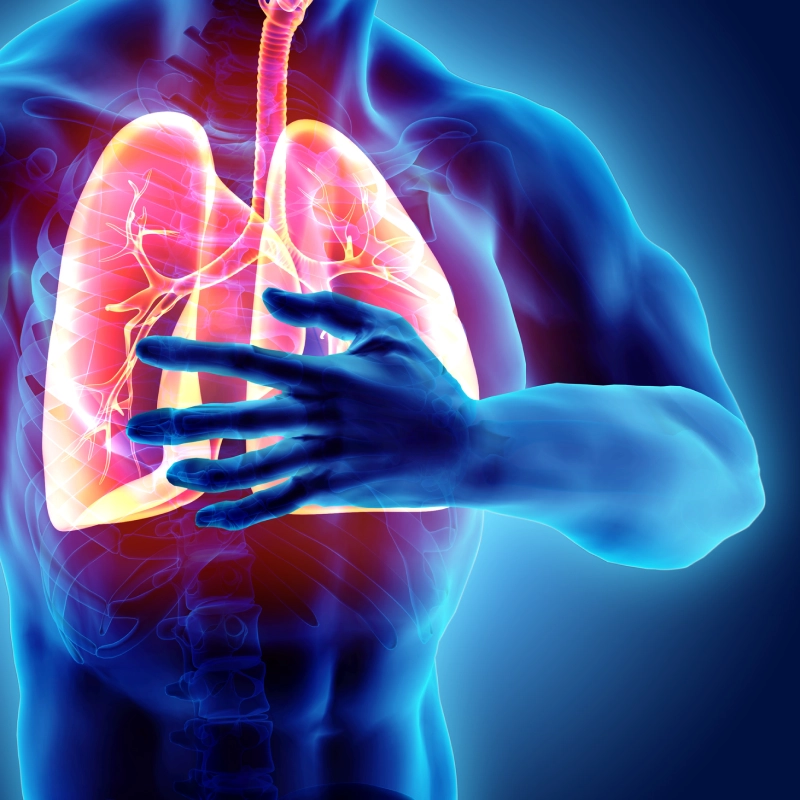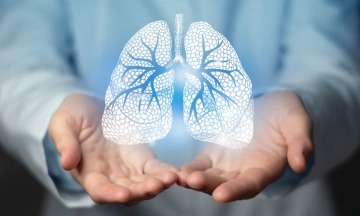
Lung fibrosis is a chronic lung disease that causes scarring of the lung tissue. This scarring makes it difficult for the lungs to work properly, and it can lead to shortness of breath, coughing, and fatigue.
Lung fibrosis is a progressive disease, which means it gets worse over time. There is no cure for lung fibrosis, but there are treatments that can help to slow the progression of the disease and improve quality of life.
Symptoms of Lung Fibrosis
The symptoms of lung fibrosis can vary depending on the severity of the disease. Common symptoms include:
Shortness of breath: This is the most common symptom of lung fibrosis. It may occur at first only with exertion, but it can worsen over time.
- Cough: This is a dry, hacking cough that may be present all the time or only come and go.
- Fatigue: This is a feeling of tiredness or weakness that can make it difficult to carry out daily activities.
- Chest pain: This is a sharp or dull pain in the chest that may worsen with breathing.
- Unexplained weight loss: This is a common symptom in people with advanced lung fibrosis.
- Clubbing of the fingers: This is a condition in which the tips of the fingers become enlarged and rounded.
Causes of Lung Fibrosis
There are many possible causes of lung fibrosis, but the most common include:
- Exposure to toxins: This includes asbestos, coal dust, and silica.
- Autoimmune diseases: This includes rheumatoid arthritis, scleroderma, and systemic lupus erythematosus.
- Connective tissue diseases: This includes idiopathic pulmonary fibrosis (IPF) and sarcoidosis.
- Radiation therapy: This can damage the lungs and lead to fibrosis.
- Certain medications: This includes amiodarone, bleomycin, and nitrofurantoin.
- Gastroesophageal reflux disease (GERD): This can cause damage to the lungs if not treated.
Diagnosis of Lung Fibrosis
Lung fibrosis can be diagnosed through a variety of tests, including:
- Medical history and physical examination: Your doctor will ask about your symptoms, medical history, and exposure to any risk factors. They will also perform a physical examination to listen to your lungs and check for other signs of lung fibrosis.
- Chest X-ray: This can show areas of scarring in the lungs.
- High-resolution computed tomography (HRCT): This is a special type of CT scan that can provide more detailed images of the lungs.
- Pulmonary function tests: These tests measure how well your lungs are working.
- Lung biopsy: In some cases, a lung biopsy may be needed to confirm the diagnosis of lung fibrosis.
Treatment of Lung Fibrosis
There is no cure for lung fibrosis, but there are treatments that can help slow the progression of the disease and relieve symptoms. These lung fibrosis treatments include:
- Medications: Several medications are approved to treat lung fibrosis, including antifibrotic drugs, corticosteroids, and immunosuppressants.
- Oxygen therapy: This provides additional oxygen to the lungs, which can help improve shortness of breath.
- Pulmonary rehabilitation: This is a program of exercise and education that can help people with lung fibrosis manage their symptoms and improve their quality of life.
- Lung transplant: In some cases, a lung transplant may be an option for people with severe lung fibrosis.
Tips for Living with Lung Fibrosis
If you have lung fibrosis, there are a few things you can do to manage your condition and improve your quality of life:
- Exercise regularly: This can help to improve lung function and strength.
- Quit smoking: Smoking can worsen lung fibrosis.
- Get vaccinated: This can help to prevent infections that can worsen lung fibrosis.
- Eat a healthy diet: This can help to boost your immune system.
- Get enough sleep: This can help you feel better and cope with stress.
- Join a support group: This can help you connect with other people who understand what you are going through.
Conclusion
Lung fibrosis is a serious lung disease that can cause significant disability. However, there are treatments available that can help slow the progression of the disease and relieve symptoms. With proper management, people with lung fibrosis can live long and fulfilling lives.








